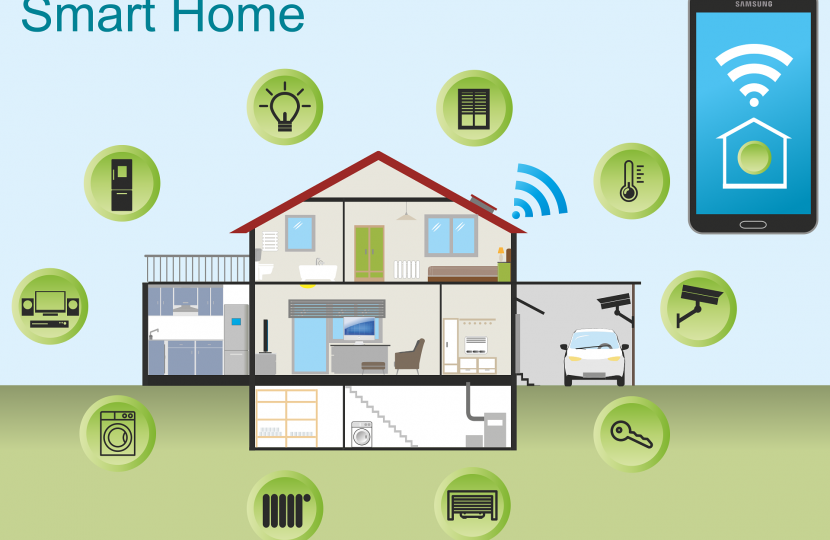
Residents at an extra care housing scheme which has piloted a range of technology designed to help maintain independence and boost social interaction, have been sharing their thoughts on the programme.
Dairy View is part of a pilot project to improve the way technology is used in housing. Residents test different devices, apps and systems and provide feedback to help decide which digital support services are best to develop.
Conservative led Wiltshire Council received £75k in funding as part of the national scheme to help involve older residents in developing new digital services. The 12-month pilot will help inform wider council plans for what is known as 'Technology Enabled Care' across the county.
The package of technology provided includes; a smart living solution system which uses a tablet device to connect to residents and staff within the home, as well as providing a video door entry system, an "oyster" mobile device with an alarm which you can use outside of your home to alert emergency services and a hydracup which helps to monitor you are drinking enough.
Alexa devices will also be trialled to assist with home operations with residents able to use voice commands to control appliances and turn on lights, which can help residents with limited mobility to maintain independence and control. The devices can also be used to give reminders for medicines or to update shopping lists.
Resident Kerri hadn't been able to access communal areas for a few weeks. She said:
The new Smart Living Solution system in our flats has allowed me to talk to a friend in the flats, from flat to flat without leaving my home. I can see his face and talk to him. It took a little while to get use to but now I am and call my friend often. I feel I can connect to people from my room, which I wasn't able to do before.
Alison is pleased with the hydracup which can help reduce the risks of dehydration. She said:
It's a good design for me and for my condition. I am using it and make my cup of tea every morning, lunch, tea, and bedtime. I drink a lot of water and hope to understand exact measurements.
Conservative Cllr Jane Davies, Cabinet Member for Adult Social Care said:
Technology is not just for the young. It's an amazing resource and we are exploring its potential for helping older people keep their valuable independence for longer. I am grateful to the residents and staff who are participating in this scheme and providing their feedback.
Our business plan has a pledge to implement a technology strategy to help people to live independently, this pilot will allow us to trial innovative approaches to encourage social contact, reduce isolation and give people a sense of independence and wellbeing.
We are already learning so much and this feedback will help shape our council-wide approach to using technology to make a powerful positive difference for the future.
Jeremy Porteus, Chief Executive of Housing LIN, said,
I'm delighted by the positive outcomes of the Wiltshire TAPPI testbed so far, with residents actively participating in evaluating the different technologies that can enhance independence, foster social interaction, and improve the wellbeing of their residents.
As Wilshire's council-wide strategy for Technology Enabled Care develops, we look forward to hearing more about how technology can play a pivotal role in housing and care across the county.
The funding is part of the pioneering TAPPI project (Technology for our Ageing Population: Panel for Innovation) which aims to improve the way technology is used in housing and care for older people through 10 practical principles.
Wiltshire is part of a wider project involving other housing providers across the UK. Led by the Housing Learning and Improvement Network (Housing LIN), the TEC Services Association (TSA) and funded by the Dunhill Medical Trust, the TAPPI project is co-produced with residents of the various testbeds.



